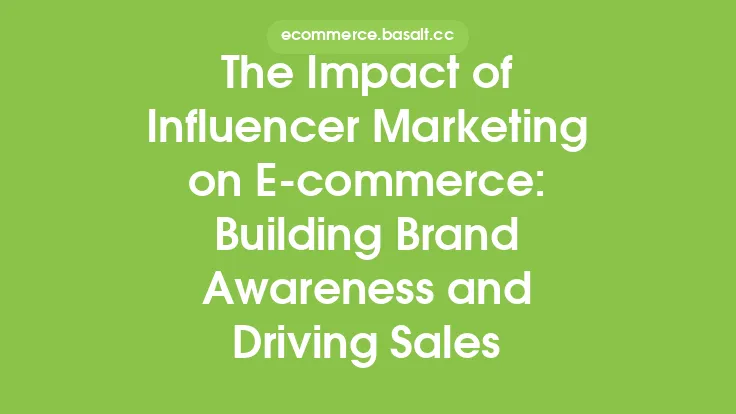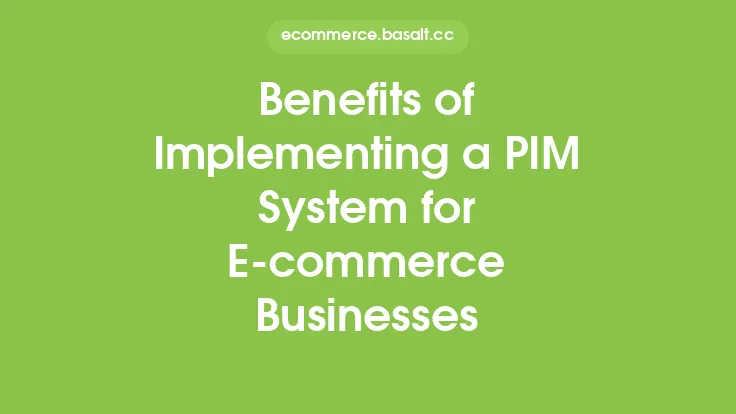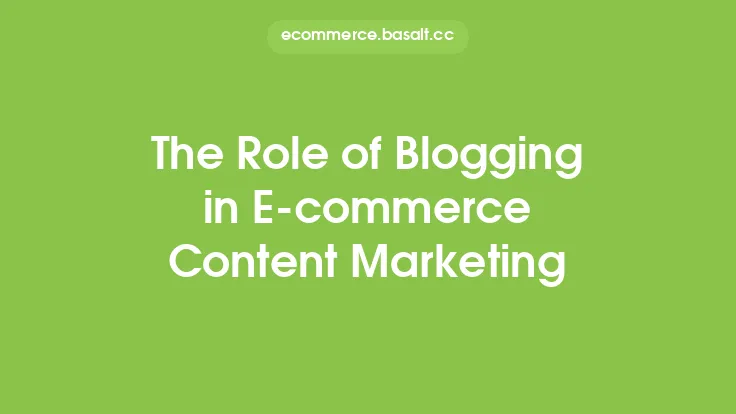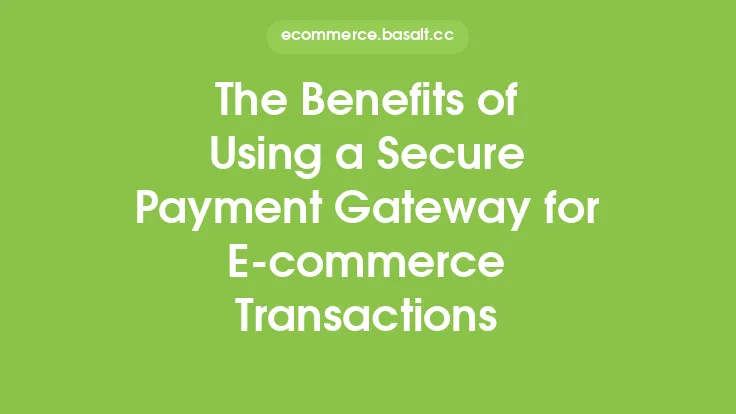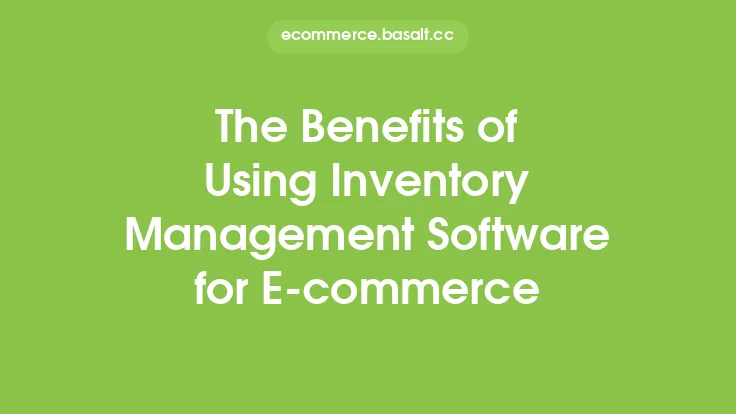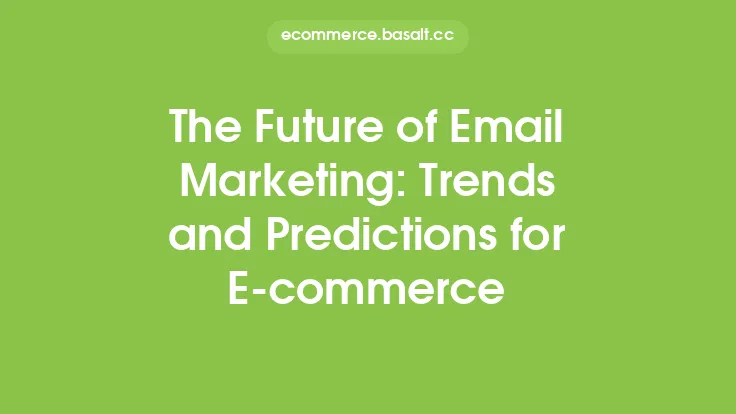In today's digital age, e-commerce businesses are constantly looking for innovative ways to reach and engage with their target audience. One effective strategy that has gained significant attention in recent years is influencer marketing. By partnering with social media influencers, e-commerce businesses can tap into the influencer's existing audience, build brand awareness, and drive sales. In this article, we will explore the benefits of influencer marketing for e-commerce businesses and why it has become a crucial component of many marketing strategies.
What is Influencer Marketing?
Influencer marketing is a form of marketing where a brand partners with an individual who has a significant following on social media or blogs. The influencer promotes the brand's products or services to their audience, often through sponsored posts, product reviews, or tutorials. This form of marketing is effective because influencers have built trust and credibility with their audience, making their recommendations more persuasive than traditional advertising.
Increased Reach and Brand Awareness
One of the primary benefits of influencer marketing is the ability to increase reach and brand awareness. Influencers have a large and engaged audience, which can help e-commerce businesses tap into new markets and demographics. By partnering with influencers, businesses can expand their reach and build brand awareness, driving more traffic to their website and online store. Additionally, influencer marketing can help businesses reach niche audiences that may be difficult to target through traditional marketing channels.
Authenticity and Credibility
Influencer marketing is also effective because it provides a level of authenticity and credibility that traditional advertising often lacks. Influencers are seen as trusted experts in their niche, and their recommendations are often viewed as more genuine and trustworthy than traditional advertising. When an influencer promotes a product or service, their audience is more likely to trust the recommendation and consider making a purchase. This is especially true for e-commerce businesses, where building trust with potential customers is crucial.
Cost-Effective Marketing
Influencer marketing can be a cost-effective way for e-commerce businesses to reach their target audience. Compared to traditional forms of advertising, such as television or print ads, influencer marketing can be more affordable and provide a higher return on investment. Additionally, influencer marketing can be targeted to specific niches or demographics, making it a more efficient use of marketing budget.
Improved Conversion Rates
Influencer marketing can also improve conversion rates for e-commerce businesses. When an influencer promotes a product or service, their audience is more likely to make a purchase due to the trust and credibility they have in the influencer. Additionally, influencer marketing can drive high-quality traffic to a website, resulting in higher conversion rates and increased sales. By partnering with influencers, e-commerce businesses can create a sense of urgency and exclusivity around their products, driving more sales and revenue.
Access to User-Generated Content
Influencer marketing can also provide e-commerce businesses with access to high-quality user-generated content. When an influencer promotes a product or service, they often create content such as photos, videos, or reviews that can be used by the business. This user-generated content can be incredibly valuable, as it provides social proof and can be used in future marketing campaigns. Additionally, user-generated content can help e-commerce businesses build a library of content that can be used to create a consistent brand voice and aesthetic.
Better Customer Insights
Finally, influencer marketing can provide e-commerce businesses with valuable customer insights. By partnering with influencers, businesses can gain a deeper understanding of their target audience, including their interests, preferences, and behaviors. This information can be used to inform future marketing campaigns and product development, helping businesses to create more effective marketing strategies and improve customer engagement.
Measuring the Success of Influencer Marketing
While influencer marketing can be an effective way to reach and engage with target audiences, it's essential to measure the success of these campaigns. This can be done by tracking metrics such as engagement rates, website traffic, and conversion rates. By monitoring these metrics, e-commerce businesses can determine the effectiveness of their influencer marketing campaigns and make data-driven decisions to optimize future campaigns.
Choosing the Right Influencer
To get the most out of influencer marketing, e-commerce businesses need to choose the right influencer for their brand. This involves researching and selecting influencers who have a genuine interest in the brand's products or services and who have an audience that aligns with the brand's target market. By choosing the right influencer, businesses can ensure that their marketing efforts are targeted and effective, driving more sales and revenue.
Creating Effective Influencer Marketing Campaigns
To create effective influencer marketing campaigns, e-commerce businesses need to have a clear understanding of their marketing goals and objectives. This involves defining the target audience, determining the key messaging, and selecting the right influencers to partner with. Additionally, businesses need to have a clear plan for measuring the success of their campaigns and optimizing future efforts. By taking a strategic approach to influencer marketing, e-commerce businesses can drive more sales, revenue, and growth.
The Future of Influencer Marketing
As the influencer marketing landscape continues to evolve, e-commerce businesses need to stay ahead of the curve to maximize their marketing efforts. This involves staying up-to-date with the latest trends and best practices, such as the use of micro-influencers, nano-influencers, and employee advocacy programs. By embracing these trends and strategies, e-commerce businesses can create effective influencer marketing campaigns that drive real results and revenue.
